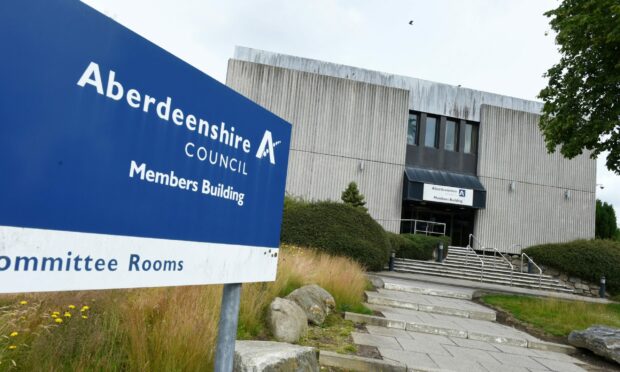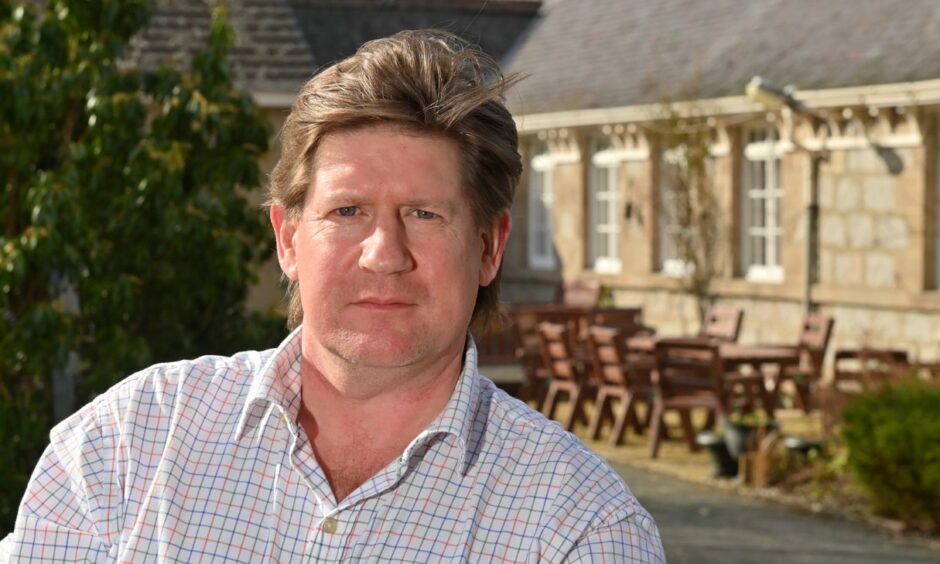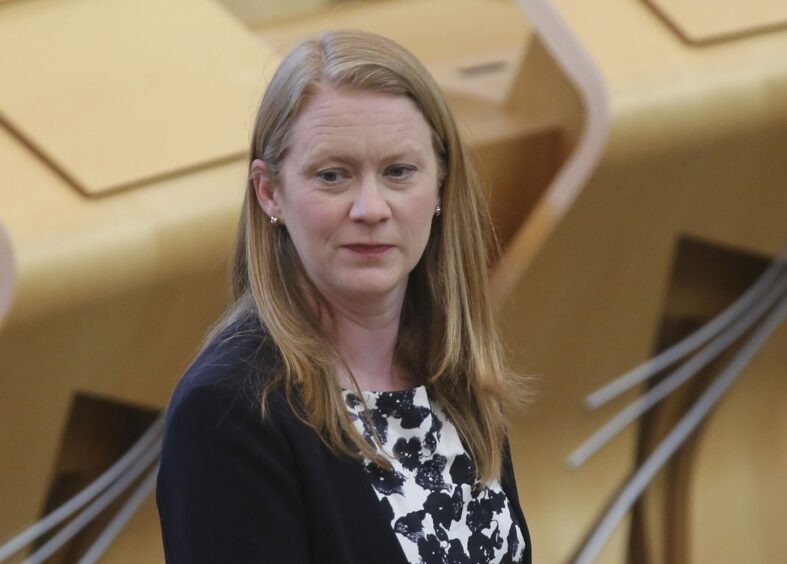More than 2,500 Aberdeenshire teachers are expected to strike in two weeks, and it’s understood that schools could close completely with no plans for virtual learning.
The first teacher strike in nearly 40 years is set to cause massive disruption across the north and north-east. Unless negotiations progress, thousands of teachers will be called out of the classroom on Thursday, November 24.
Details about the potential impact on Aberdeenshire schools were reported by Scottish Conservative MSP for Aberdeenshire West Alexander Burnett.
Mr Burnett cited potential school closures in a plea to the Scottish Government, asking Education Secretary Shirley-Anne Somerville to intervene ahead of the strike.
A spokesperson for Aberdeenshire Council said that officials are still considering the potential strike impact. The council will have more information for parents soon.
Ms Somerville said that she is committed to avoiding unnecessary strike actions. She said a strike is not in the interest of teachers, pupils or parents.
Other local authorities around the north and north-east have said it’s too early to know exactly how their schools will be impacted. EIS estimates that there are 9,000 member teachers in councils across the region.
Aberdeen City, Shetland, Orkney, Highland and Moray Councils all plan to hold meetings early next week.
Calls for Government to intervene before teacher strike
According to a release from Mr Burnett’s office, up to 2,800 Aberdeenshire teachers could strike on November 24.
The release added:
“It’s understood staff who are not part of the union will still have to come into school but no virtual learning will take place for pupils across the local authority.”
Aberdeenshire EIS assistant secretary Adam Sutcliffe put the total membership in Aberdeenshire at about 2,500 teachers. It’s unclear if members of other teaching unions will also be striking.
NASUWT-The Teachers’ Union currently has a strike ballot open to Scottish members. It will close on November 21.
Mr Burnett called on the Scottish Government to step in and stop the teacher strike in Aberdeenshire and elsewhere.
“Parents and pupils have already suffered huge disruption during the last two years and strike action is the last thing they need.
“School closures across the north-east will only add to the hardship families are already facing as additional childcare costs must be sought.
“As a parent I know first-hand what an incredible job our teachers in Aberdeenshire do which is why I urge Shirley-Anne Somerville said strikes to finally show some leadership and resolve this dispute.”
Government says strikes are in ‘no one’s interest’
Ms Somerville that a strike is not in the interests of teachers, parents or pupils. Almost three years of Covid-19 has caused enough disruption, she said.
“The Scottish Government and Scottish Local Government value the teaching workforce.
“We recognise the vital importance of reaching a fair and affordable resolution on pay, both for the workforce during a cost of living crisis, and for the pupils and parents who rely on the vital services our teaching workforce deliver.
“We are absolutely committed to working together to support a fair pay offer for teachers through the Scottish Negotiating Committee for Teachers, and to avoiding unnecessary strike action and the disruption that would cause.”
What’s the background?
If you’re just catching up on the current strike talks, there have been a lot of developments in the last few days.
This month, the Educational Institute of Scotland (EIS) balloted members on industrial action. The results came out this week and they showed that members are overwhelmingly in favour of a strike.
EIS represents almost 55,000 Scottish teachers, 80% of the nation’s teaching workforce. The recent ballot received a 71% turnout and 96% of those who participated voted to strike.
The union can’t know how individual members voted at this point. But it’s clear from the percentages that tens of thousands of teachers are prepared to walk out of classrooms across the country.
If the teacher strike goes ahead, it will be the first since a heated pay dispute of 1984-86.
During the 1980s dispute, almost 15 million pupil days were lost. Papers released years after the event show how it sparked heated debates at Westminster and pitted Scottish educators against the Margaret Thatcher government.
Union members have been asking for a 10% pay rise since early 2022. That was before the war in Ukraine and the cost-of-living crisis began taking a toll nationally. Union leaders said that the current economic climate has raised the stakes.
The most recent offer was a raise of 5%, which members rejected outright and sparked the strike ballot.
Read more from the Schools and Family team
Step right up! Get your tickets today for the Evening Express Christmas Concert
Plans to change catchment boundaries at Glashieburn and Greenbrae schools put to public



Conversation